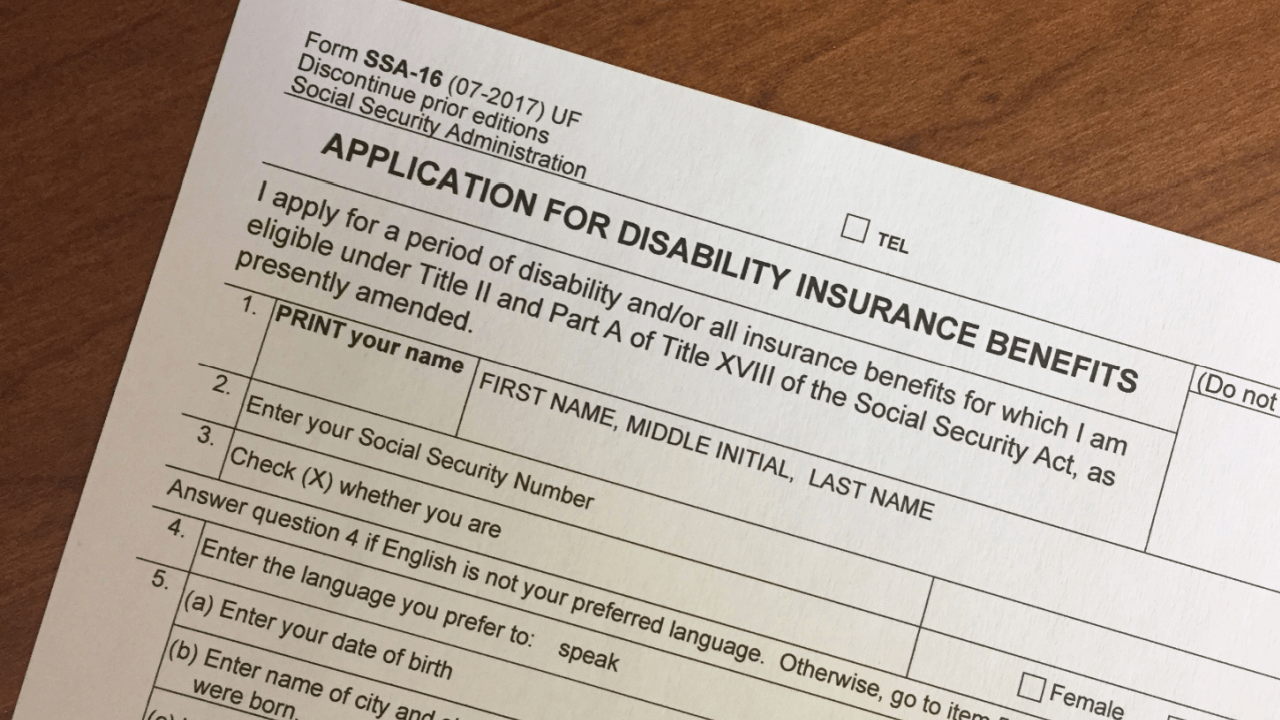
What Disability Is Hard to Prove? | Commonly Challenging Conditions
What Disability Is Hard to Prove?
When applying for Social Security Disability Insurance (SSDI), not all disabilities are evaluated equally. Many applicants wonder: what disability is hard to prove? While some conditions can be verified with clear-cut medical tests, others are more subjective, fluctuating, or difficult to measure, which can make meeting SSA’s evidentiary requirements more challenging.
The SSA requires strong medical evidence showing that a condition significantly limits your ability to work. If your disability is based primarily on symptoms rather than objective test results, additional supporting documentation is often required.
In this article, we’ll explore which types of disabilities are typically harder to prove, why they pose challenges, and how you can strengthen your SSDI application with supporting evidence.
Why Some Disabilities Are Harder to Prove for SSDI Approval
Some conditions are inherently more difficult for SSA examiners to evaluate. Here’s why:
Subjective Symptoms
Conditions like chronic pain, migraines, fibromyalgia, and chronic fatigue syndrome rely heavily on the patient’s description of symptoms rather than clear laboratory or imaging results. Without objective tests, SSA requires very strong supporting evidence.
Fluctuating Symptoms
Illnesses that vary in severity from day to day—such as bipolar disorder, multiple sclerosis (in early stages), and lupus—make it harder to establish a consistent work-related impairment.
Mental Health Disorders
While serious mental illnesses like schizophrenia often qualify, conditions like moderate depression or anxiety can be difficult to prove because:
- Symptoms are internal and not visible.
- Severity can vary depending on treatment, therapy, or medication compliance.
- Some applicants continue working part-time, making it harder to demonstrate work-related functional limitations under SSA standards.
Lack of Treatment Records
SSA heavily weighs ongoing medical care. If treatment is sporadic or if applicants have gaps in their records, it becomes harder to show persistent, disabling limitations.
Rare or Poorly Understood Conditions
Diseases that are rare, newly identified, or not well-understood by the medical community can also be harder to prove, even when the impairment is genuine.
How to Strengthen a Difficult Disability Claim
If your condition falls into one of the “hard to prove” categories, you must work even harder to build a strong, well-documented claim.
Gather Detailed Medical Evidence
- Include notes from specialists (e.g., rheumatologists for fibromyalgia, neurologists for migraines).
- Submit diagnostic studies, even if they only rule out other causes (important for SSA evaluations).
- Obtain thorough treatment histories, including hospitalizations, medications tried, and therapy sessions.
Use a Residual Functional Capacity (RFC) Form
Your treating doctor can complete an RFC form describing specific functional limitations caused by your condition. A well-detailed RFC explaining your inability to:
- Sit for long periods
- Stand or walk without rest
- Maintain focus or attendance
is an important part of SSA’s evaluation process.
Include Symptom Diaries or Personal Statements
Keeping a symptom diary showing daily struggles, flare-ups, and treatment effects can provide supplemental evidence to strengthen your case.
Secure Third-Party Statements
Family members, caregivers, coworkers, or case managers can provide affidavits describing how your disability impacts your daily living and work abilities.
Hire an Experienced Disability Lawyer
An experienced disability attorney can help gather the right medical evidence, communicate with your doctors, and present your case in a way that addresses SSA’s evaluation criteria, even when objective test results are limited.
What Disability Is Hard to Prove? Final Thoughts
So, what disability is hard to prove? Conditions based heavily on subjective symptoms—like chronic pain, fibromyalgia, and certain mental health disorders—pose the greatest challenges. Fluctuating and poorly understood conditions can also create hurdles.
However, even difficult cases can be properly evaluated with thorough documentation, medical support, and well-organized legal assistance.
Get Legal Help Navigating the Disability Application Process
Building a winning SSDI claim—especially for hard-to-prove conditions—takes more than a diagnosis. You may wish to seek guidance to better understand SSA’s application and review standards.
Legal Brand Marketing connects you with experienced disability lawyers who know how to build strong, persuasive cases—even when your symptoms don’t show up on a scan.
Incomplete documentation or unclear evidence can affect how SSA reviews an application. Contact us today to get matched with a trusted SSDI attorney who can assist with the SSDI application and review process.
Frequently Asked Questions (FAQs)
1. Why are conditions like fibromyalgia harder to get approved for SSDI?
Fibromyalgia symptoms are subjective (like pain and fatigue) and lack definitive diagnostic tests, making them harder for SSA to verify objectively.
2. Can mental health conditions be difficult to prove for SSDI?
Yes. Conditions like depression or anxiety can vary in severity and rely heavily on self-reported symptoms, requiring strong treatment records for approval.
3. Does lack of consistent medical treatment hurt my claim?
Yes. Gaps in treatment make it harder to demonstrate a persistent and severe disability to SSA evaluators.
4. How can I prove a fluctuating condition like lupus?
Submit medical records showing the pattern of flare-ups, RFC assessments from specialists, and personal statements documenting how symptoms impact workability.
5. Is legal help important for hard-to-prove disabilities?
Absolutely. Disability lawyers understand how to strengthen subjective claims and present compelling vocational and medical evidence to SSA.
Key Takeaways
- Subjective conditions like chronic pain, fibromyalgia, and mental illness are harder to prove.
- Strong medical records, RFC forms, and symptom diaries improve approval chances.
- Gaps in treatment and inconsistent care weaken difficult claims.
- Legal support greatly increases success rates for hard-to-prove disabilities.
- Legal Brand Marketing connects you with lawyers experienced in winning challenging SSDI cases.


